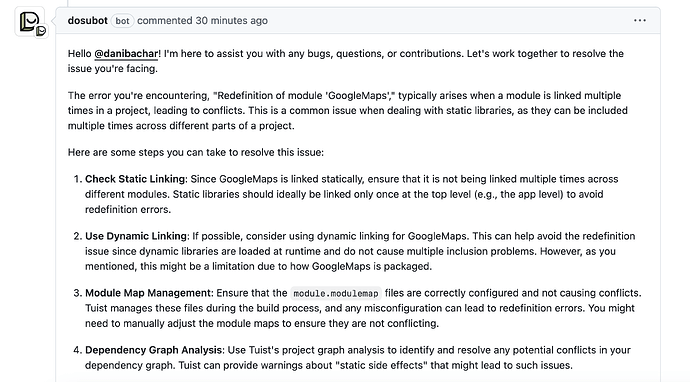As you might know, open-source projects can suffer from a support burden that exceeds the team’s capacity, and Tuist is no exception. We receive many questions on Slack, Discord, and GitHub issues, and it’s becoming increasingly difficult for us to keep up with them all.
Many of these questions have often been answered before or even resolved, but understandably, it’s easier to ask again (we’d probably do the same ![]() ). The community does help a bit here—especially compared to Slack—because it suggests related topics. However, this alone isn’t enough, as activity is still spread across Slack and GitHub. So, what can we do?
). The community does help a bit here—especially compared to Slack—because it suggests related topics. However, this alone isn’t enough, as activity is still spread across Slack and GitHub. So, what can we do?
Capturing knowledge and using it to automate repetitive tasks is something LLMs excel at. However, we didn’t want to simply throw an LLM into the mix and risk it providing random or unhelpful answers. That would shift the problem from struggling to keep up with support to offering poor support, which goes against the quality we strive to maintain at Tuist.
Luckily, I recently came across Dosu on one of the open-source podcasts I enjoy. They discussed the exact problem we’re facing and how Dosu could help, so I couldn’t resist trying it out for Tuist. Dosu is now integrated with Slack and GitHub, and you might notice it answering your questions. It only responds when it’s confident in its answer; otherwise, it stays silent.
This is a new tool and an experiment for us, so I’d love to hear your feedback. How has your experience been interacting with it? Were the answers helpful? What would you have expected in cases where it wasn’t? Please share your thoughts! As I mentioned, this is an exploratory phase, and we’re open to reverting if it turns out people are unhappy with the experience.
